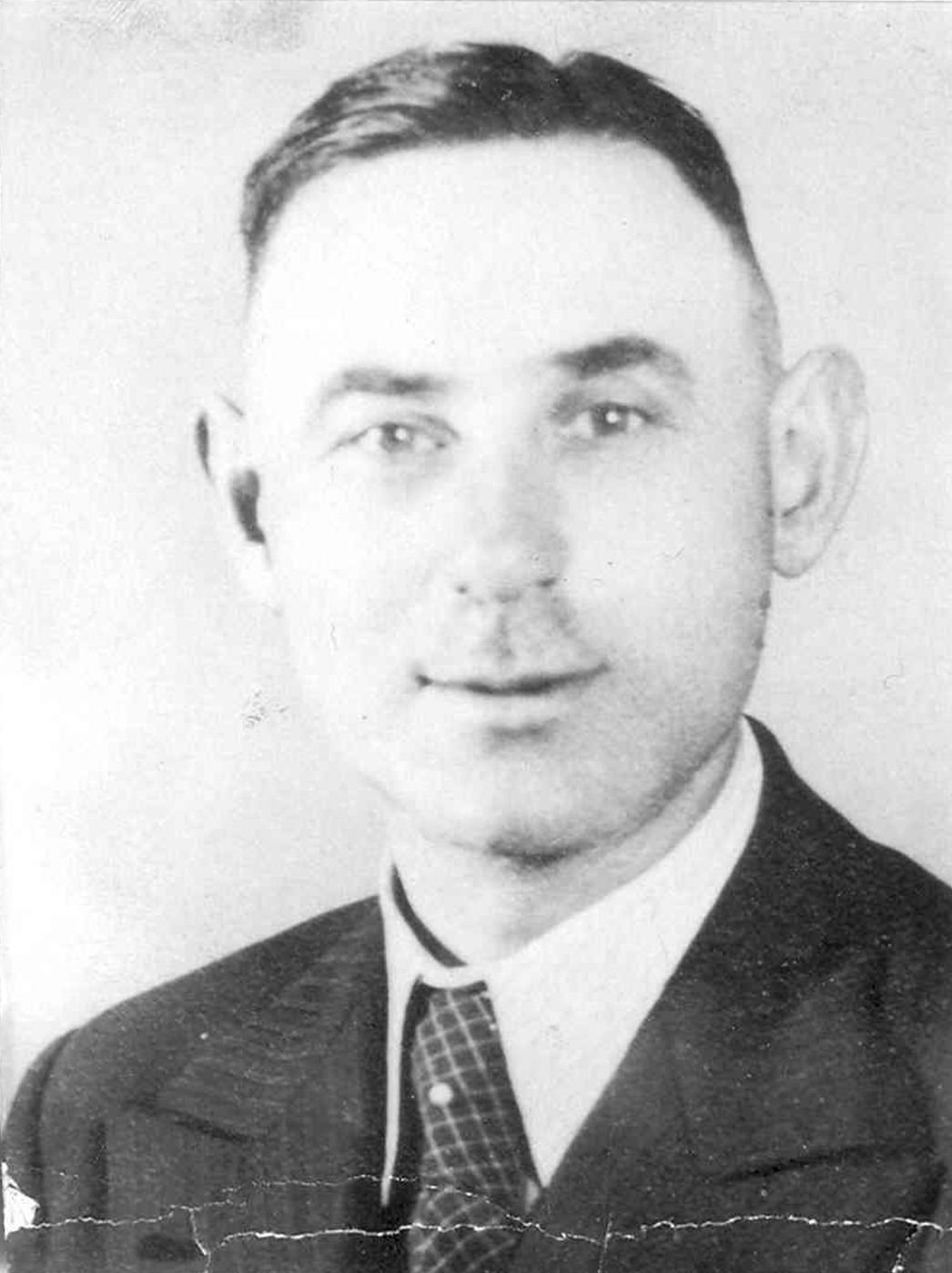Transcript
Karoline Wolff To the Weimar-Buchenwald concentration camp. I hereby ask cordially whether I may be permitted to send my husband, preventive custody inmate Wolff Martin Israel, no. 6378, Block 16 (war invalid), a bandage and socks for his injured leg.
Most respectfully, Karoline Sara Wolff.
Narrator When the letter arrived at the camp on the 17th of March 1942, Karoline Wolff’s husband was already dead. A note on the envelope says: “12th March 1942, transferred”.
Martin Wolff grew up in East Friesland and worked as a cattle dealer. In 1934, he moved with his wife and five children to an estate near the town of Aurich. For several years they ran a holiday home for Jewish children from large cities. Then, even before the November pogroms of 1938, neighbours complained about the family and the bailiff terminated their lease. In 1940, the Gestapo instructed the Wolffs to leave Aurich, because East Friesland was to be “free of Jews”. Their daughters Rösel and Hildegard managed to emigrate, while their younger brothers Wolfgang and Selly were taken to a Jewish orphanage. Hannelore, the third daughter, was sent to Berlin and the parents moved in with Karoline’s mother in Weimar.
In Weimar it was not long before Jews were forced to leave their houses and flats and move into one of the designated “houses for Jews”. Now they lived in very tight quarters at no. 6 Am Brühl. Martin Wolff became a forced labourer. His daughter Hannelore remembered:
Hannelore Wolff I own a picture of him that I received after the war. He looks very bad in it. He had been wounded in the First World War and had a limp. One of his feet was shorter than the other, and there were still parts of a bullet in his knee.
Narrator Martin Wolff was later assigned to a potato dealer. Because Jews were banned from public transport, he travelled the long distance to work by bicycle.
Starting in the autumn of 1941, Jews had to wear a yellow star visibly on their clothing. Almost anything that could be construed as an offence was now cause for denunciation or arrests at random. In mid-January 1942, the Gestapo arrested Martin Wolff on the street in Weimar. The reason: “untruthful statements about the reportable ownership of a bicycle”. One week later, he was deported to the Buchenwald concentration camp. Early in March, Hannelore wrote to him:
Hannelore Wolff My dear Papa, I hope you are as healthy as I am. We were very happy about your kind letter. Stay strong and healthy and be greeted and kissed from the depths of my heart, your daughter Hannelore.
Narrator This letter did not reach him either. On the 12th of March, the SS had Martin Wolff and other Jewish as well as “disabled” inmates taken to the mental hospital Landesheil- und Pflegeanstalt Bernburg, where they were killed in a gas chamber. Karoline Wolff received a letter from Buchenwald several days after the murder took place. It said that her husband had died of an unknown cause.
In April, Karoline Wolff and her sons received a notice of deportation. Hannelore volunteered to come so she could stay with her family. Her mother and her brothers died upon their arrival in Lublin. Hannelore managed to get her name on Oskar Schindler’s list and survived.
What happened to her relatives remained a mystery for years. When Hannelore’s sister Hildegard began looking for her parents and brothers through the International Tracing Service in 1959, she learned only about the death of her father. She was told that there was no information on any other members of the family.


